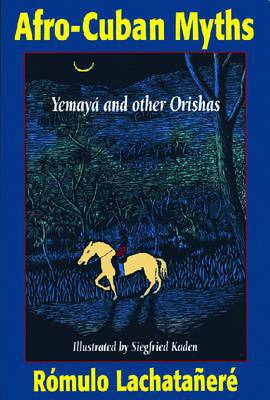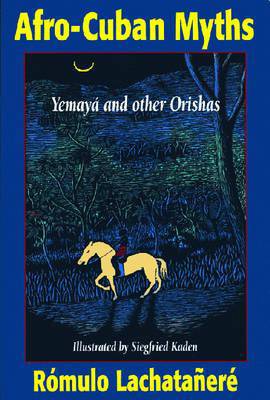
- Afhalen na 1 uur in een winkel met voorraad
- Gratis thuislevering in België vanaf € 30
- Ruim aanbod met 7 miljoen producten
- Afhalen na 1 uur in een winkel met voorraad
- Gratis thuislevering in België vanaf € 30
- Ruim aanbod met 7 miljoen producten
Zoeken
Omschrijving
A moving collection of myths and tales, Afro-Cuban Myths was first published in 1938 under the title Oh, Mío Yemayá! These stories lead readers into a marvelous and magical world: the extraordinary imaginations of Afro-Cubans. Destined to become a classic in its field, it was the first to gather a sizable sample of Cuban patakíes (myths) characteristic of the Regla de Ocha (or Santería), the most widespread Afro-Cuban religion practiced on the island. These fantastical tales represent the profound response by the Santería to some fundamental questions of popular theology and philosophy. Rómulo Lachatañeré had to overcome prejudices that consider the religion and its associated literature undeserving of intellectual attention while he penetrated the secrecy in which black believers cloaked their beliefs and practices. They were fearful -- with good reason -- of attracting disdain, desecration, and persecution. The book also features an introduction by Jorge Castellanos, who has published widely on the influence of African culture on Cuban society.
Specificaties
Betrokkenen
- Auteur(s):
- Illustrator(s):
- Uitgeverij:
Inhoud
- Aantal bladzijden:
- 178
- Taal:
- Engels
Eigenschappen
- Productcode (EAN):
- 9781558763180
- Verschijningsdatum:
- 1/09/2011
- Uitvoering:
- Paperback
- Formaat:
- Trade paperback (VS)
- Afmetingen:
- 152 mm x 229 mm
- Gewicht:
- 267 g

Alleen bij Standaard Boekhandel
+ 61 punten op je klantenkaart van Standaard Boekhandel
Beoordelingen
We publiceren alleen reviews die voldoen aan de voorwaarden voor reviews. Bekijk onze voorwaarden voor reviews.











